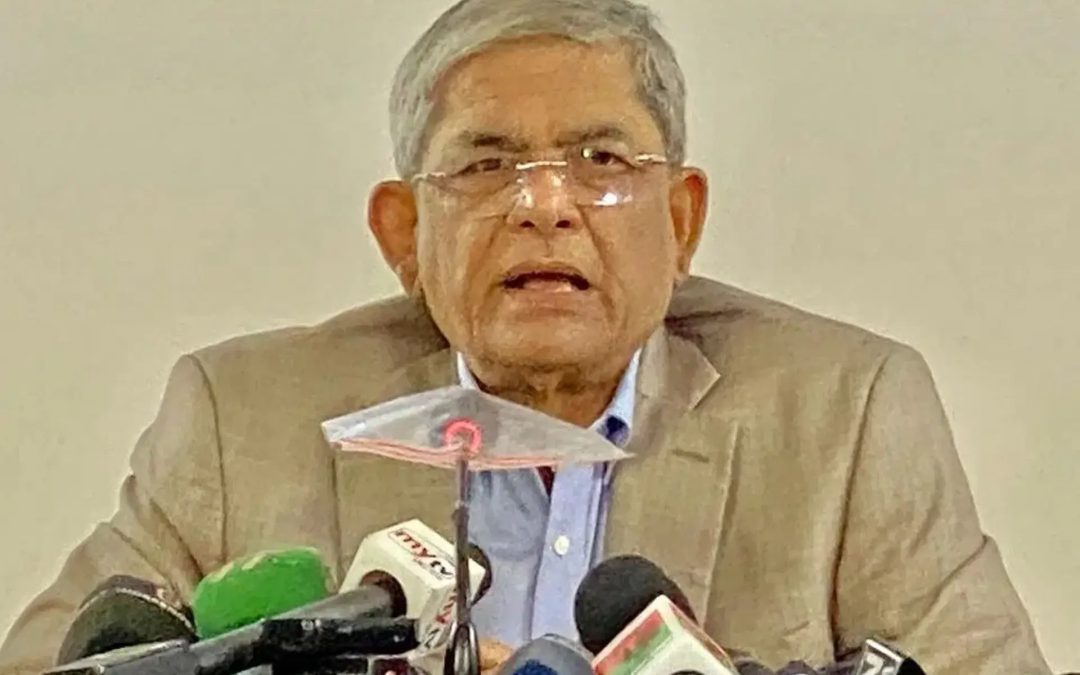Mirza Fakhrul Islam Alamgir|Photo: File image
A Cry for Justice Amidst Adversity
Bangladesh, a country that has demonstrated both potential and perseverance, is at a pivotal point in its history.
On October 25, 2022, Mirza Fakhrul Islam Alamgir, the Secretary General of the Bangladesh Nationalist Party (BNP), spoke powerfully about political tensions and societal concerns.
Speaking at the 18th anniversary celebration of Daily Nayadiganto, he vividly depicted a nation grappling with unfulfilled promises.
His plea was not just for his party or political ambitions but for the restoration of basic rights, democracy, and accountability—a sentiment that echoes deeply among the people.
Let’s dig into the challenges, hopes, and visions shared during this crucial discussion.
The Erosion of Rights and Freedoms
Mirza Fakhrul lamented a stark reality: the erosion of fundamental rights in a country that was born from the sacrifices of the 1971 Liberation War.
His words resonated with a biting question: “Did we fight for independence only to see our right to vote, to speak, and to express ourselves taken away?”
Criticizing the ruling Awami League government, he accused them of using the banner of freedom and the Liberation War to justify curbing democratic freedoms.
Journalists, he argued, now face constraints that threaten their ability to write freely—a cornerstone of any democracy.
Such actions, he declared, contradict the principles for which the nation’s heroes fought.
Despite this, Mirza Fakhrul urged patience and resilience.
The fight for rights and democracy, he emphasized, must continue with courage and determination.
Is it development or disruption? A Tale of Contradictions
The recent havoc caused by Cyclone Sitrang brought a harsh spotlight on infrastructure challenges.
Heavy rains flooded sections of the Dhaka-Mymensingh highway, leading to long traffic jams and chaos.
Mirza Fakhrul criticized this as a direct outcome of the government’s so-called “mega projects.”
Pointing to the waterlogged streets and impassable roads, he highlighted the gap between promises of “mega development” and the stark realities faced by everyday citizens.
As he struggled to reach the event venue due to these disruptions, his frustration was palpable.
The challenges were not just natural but also symptomatic of mismanagement and misplaced priorities, he argued.
The situation also revealed systemic flaws in urban planning and governance, further deepening public frustration.
A Call for Constitutional Reform
One of Mirza Fakhrul’s most striking statements was his vision for constitutional change.
He criticized amendments, particularly the removal of the caretaker government system, as steps that undermined democratic principles.
He promised that if the BNP gains the people’s mandate, they would form a constitutional commission to ensure the constitution aligns with the people’s aspirations.
The aim, he explained, is to establish a system that reflects equality, justice, and contemporary needs—a constitution that prioritizes human values and societal welfare.
He called on journalists to continue their pivotal role in shaping a progressive and free-thinking Bangladesh.
Their commitment to truth, he said, is essential in building a nation rooted in equality and justice.
Verdict: A Vision for a Better Tomorrow
Bangladesh stands at a defining moment.
The voices like that of Mirza Fakhrul Islam Alamgir highlight the urgent need for change—a shift toward justice, accountability, and the true spirit of democracy.
The road may be fraught with challenges, but history reminds us that perseverance can reshape destinies.
The hope for a brighter future rests not just with political leaders but with every citizen.
By demanding accountability, embracing resilience, and fostering dialogue, Bangladesh can transform its current struggles into the foundation for a nation that truly represents the aspirations of its people.
This is not just a political fight; it is a collective journey toward reclaiming the dreams of 1971—a dream of a nation united by justice, equality, and freedom.

